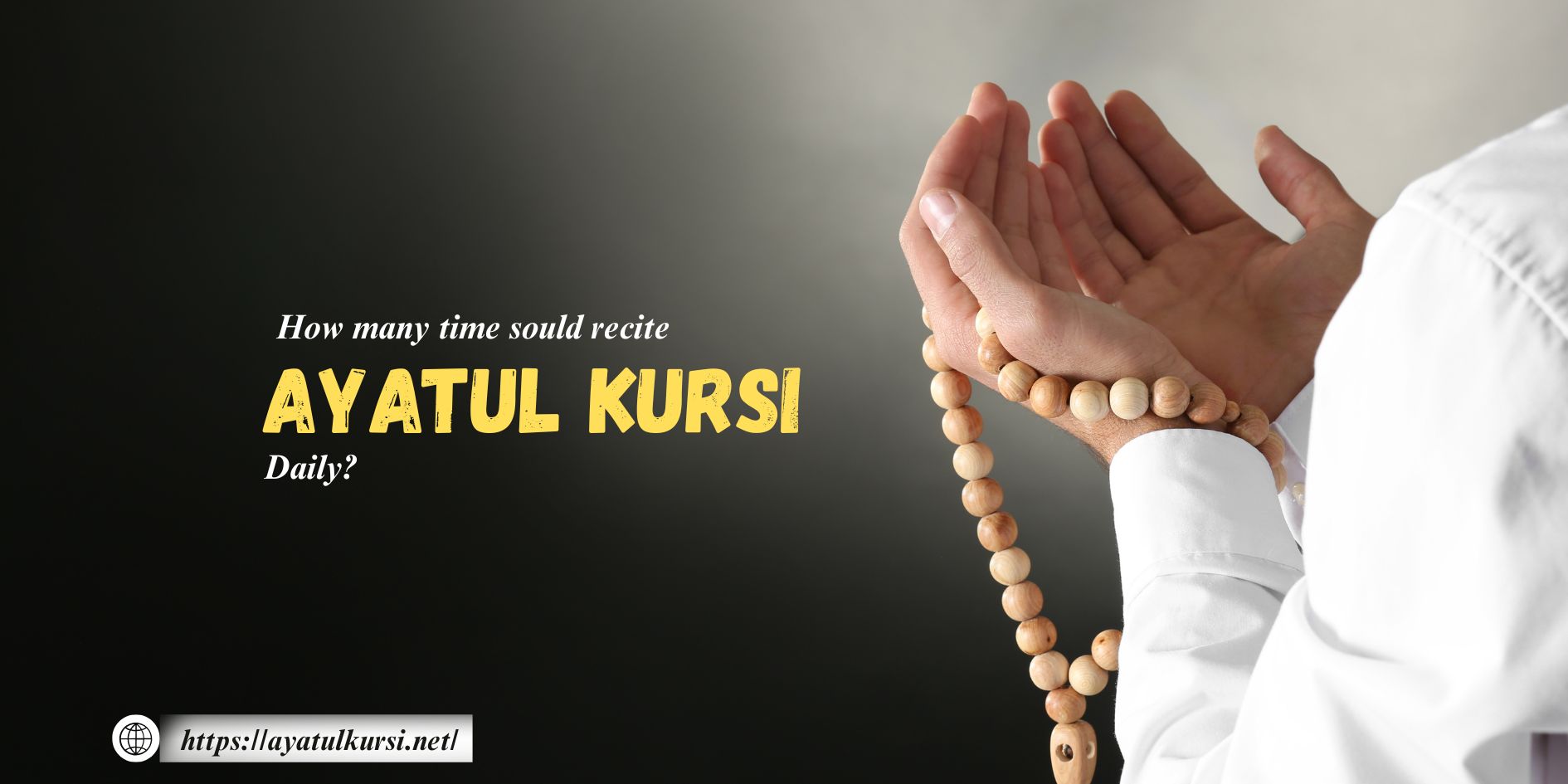
Ayatul Kursi, one of the most powerful verses in the Holy Quran, holds deep spiritual and protective significance for every Muslim. Many believers wonder: how many times should you recite Ayatul Kursi daily? Ayatil Kursi verse, is known as a divine shield against evil, a source of peace, and a reminder of Allah’s greatness.
Table of Contents
How Many Times Should You Read Ayatul Kursi Daily?
The Prophet Muhammad (ﷺ) encouraged Muslims to recite Ayatul Kursi multiple times throughout the day for spiritual protection and blessings.
Here’s a simple routine based on authentic narrations and Islamic scholars’ guidance:
After Every Fardh (Obligatory) Prayer:
The Prophet (ﷺ) said that whoever reads Ayatul Kursi after every obligatory prayer will be protected until the next prayer.
→ Hadith Reference: An-Nasa’i
Before Sleeping:
Reading it before sleep brings divine protection throughout the night and keeps you safe from harm and evil.
After Fajr and Maghrib:
Many scholars recommend reciting it after Fajr (dawn) and Maghrib (sunset) for peace and blessings during the day and night.
✅ In short:
A Muslim should aim to recite Ayatul Kursi at least 5 times daily — after every obligatory prayer — and add more during personal dhikr or special moments of reflection.
Benefits of Ayatul Kursi Recitation
The benefits of Ayatul Kursi are countless. Here are some of the most profound ones:
- Protection from Evil:
Ayatul Kursi acts as a spiritual shield against jinn, shaytan, and negative energy.
2. Peace of Mind and Heart:
Regular recitation helps calm anxiety and strengthens your connection with Allah.
3. Increased Barakah (Blessings):
Reciting Ayatul Kursi daily invites divine blessings into your home and life.
4. Strengthens Faith:
Reflecting on its meaning reminds believers of Allah’s supreme power and presence.
5. Spiritual Upliftment:
It’s among the most powerful Islamic prayers for protection and spiritual growth.
Best Times to Read Ayatul Kursi
There is no fixed limit to how many times you can recite Ayatul Kursi daily — the more, the better. But here are the best times to read Ayatul Kursi for maximum blessings:
- After every fardh salah (obligatory prayer)
- Before sleeping at night
- After Fajr and Maghrib prayers
- When leaving home for safety
- During travel for protection
- When feeling fearful or anxious
Why Should We Read Ayatul Kursi Before Sleeping?
The Prophet (ﷺ) instructed his companions to recite Ayatul Kursi before sleeping because it ensures that Allah appoints an angel to protect the believer throughout the night.
It’s a simple yet powerful act of daily dhikr that fills your night with peace and divine mercy.
Spiritual and Miraculous Power of Ayatul Kursi
The power of Ayatul Kursi lies in its message of divine authority and protection. It reminds Muslims that Allah alone controls everything in the heavens and the earth.
Many believers share real-life experiences of miracles from reading Ayatul Kursi daily, such as safety during danger, peace during stress, and protection from harm.
Daily Routine of Ayatul Kursi Recitation
Here’s a simple way to add Ayatul Kursi to your daily routine:
| Time | When to Recite | Purpose |
| After Fajr | Morning protection | Start your day with barakah |
| After Each Salah | 5 times daily | Continuous protection |
| Before Sleeping | Night protection | Peaceful rest |
| During Fear | Anytime | Strengthen faith & courage |
FAQs – About Recite Ayatul Kursi Daily
1. How many times should a Muslim recite Ayatul Kursi in a day?
At least five times daily — after every obligatory prayer. More recitation brings greater rewards.
2. What happens if you recite Ayatul Kursi after every prayer?
You are under Allah’s protection until the next prayer.
3. Why should we read Ayatul Kursi before sleeping?
To receive divine protection throughout the night and peace of heart.
4. What are the benefits of reciting Ayatul Kursi after Fajr?
It brings barakah (blessings), shields from evil, and keeps your day peaceful.
5. How does Ayatul Kursi protect from evil?
It serves as a spiritual barrier by reminding believers of Allah’s absolute power.
